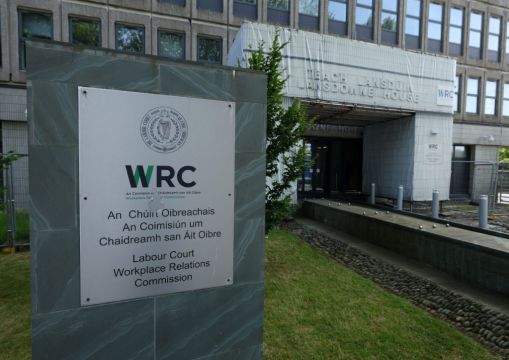The manager of a group of pubs has been awarded €45,000 after being sexually harassed by a senior female colleague at work over an extended period.
The Workplace Relations Commission ruled that the company’s group operations manager had suffered discrimination on the basis of his gender, contrary to the Employment Equality Act.
However, the WRC dismissed the man’s claims that he had also been victimised by his employer and had been constructively dismissed from his job by being forced to leave his role because of the inappropriate behaviour of his female colleague, whom he regarded as his manager.
The pub group, which was not identified, denied the manager’s claims or that he had been subjected to constructive dismissal.
It claimed he had resigned without any warning for a number of reasons, including the post-pandemic crisis affecting the sector, but without making any reference to any sexual harassment.
The company also argued that the man had sought to engage in a secretive consensual exchange with a workplace peer before the relationship soured, while totally disregarding policies that he was paid to uphold as a senior manager.
The WRC heard that the woman, who was the group's financial controller, began flirting with her colleague in August 2021 when he had been working for three months in his role after rejoining the group where he had previously worked between 2012 and 2015.
Although they kissed after a period where she had been taunting him, the complainant said he made it clear that it was the last time it would happen.
However, the man said that his colleague persisted in trying to kiss him and that he was subjected to a constant stream of sexually inappropriate texts, photos and videos via WhatsApp until he left his job in August 2022.
He claimed the conduct was of a sexual nature that was entirely unwanted and which violated his dignity.
The man said his colleague’s behaviour had created an intimidating, hostile, degrading and humiliating environment for him.
The WRC heard that she repeatedly reacted to his rejection by subjecting the complainant to verbal and emotional abuse and manipulation as well as making his job impossible, which culminated in his resignation.
He claimed she accused him of being a liar and claimed he would not have secured his job but for her.
In addition, he said she had threatened to resign so she could be in a relationship with him, claimed she was suicidal and made veiled threats.
The complainant said the woman continued to contact him after his resignation, demanding that he keep their communications confidential as well as making further advances.
Counsel for the complainant, Alan Cronan BL, claimed his client was entitled to resign due to being sexually harassed and victimised and the company’s unreasonable behaviour in failing to have any anti-harassment policy in place.
However, the pub group claimed it was surprised to find out through a letter from the man’s solicitor in August 2022 a reference to a consensual relationship which had soured.
It maintained that it does not tolerate discrimination, victimisation or any type of harassment and that the complainant was aware of its policies and procedures from the time when he had previously worked in the group.
The company said the man was aware of this as he had once been admonished by the owner for using inappropriate language to a colleague.
A company representative said it was untrue to claim he had raised his colleague’s behaviour with the owner, while he had also failed to use its grievance procedures.
WRC adjudication officer, Davnet O’Driscoll, noted that the complainant had not been given a contract of employment or any dignity at work/anti-harassment policy when he rejoined the company in 2021.
Ms O’Driscoll observed that the owner claimed he was informed in late 2021 by Miss A that she was not getting on with the complainant, while the complainant was told by the owner that he had to find a way to get on with Miss A because she was very important to the company.
She said the manager had not made any complaint to the owner about the harassment as he was on probation, and he felt there would not be a positive outcome for him.
Ms O’Driscoll said she accepted his evidence that he was initially involved with Miss A but then rejected her advances.
The WRC said there was an extensive record of text messages from Miss A which showed persistent sexually inappropriate messages up to August 2022, even though the complainant had repeatedly told her they were unwanted after an initial short flirtation.
“I am fully satisfied the actions of Miss A had the purpose or effect of violating the complainant’s dignity and creating an intimidating, hostile and degrading, humiliating or offensive environment for him,” said Ms O’Driscoll.
While an employer had defence to a complaint of sexual harassment by showing it had taken reasonable steps to prevent it, the WRC noted it had no anti-harassment policy in place at the time.
Ms O’Driscoll said the pub group’s procedures were “clearly deficient” and it could not avail of such a defence.
However, she said there was no evidence of victimisation as the owner was totally unaware of the issues until he had received the complaint about sexual harassment following the manager’s resignation.
Ms O’Driscoll also ruled that the complainant had not established that he was constructively dismissed as he had not acted reasonably in failing to bring his complaints to the attention of his employer before resigning.







